Prem Sewa Hospital
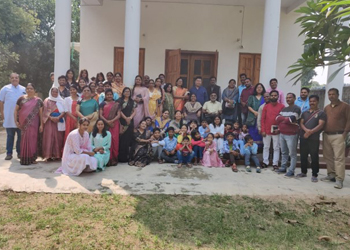
EHA’s Prem Sewa Hospital was founded in 1966 by the Central India Christian Mission. They began as a small clinic with 12 beds, but today they have 35 beds and a staff of 80, including 7 doctors, 24 nurses, and 7 paramedical staff.
In the course of a year, their outpatient department serves 48,600 patients, and approximately 1,400 are admitted to the inpatient department. Their OB/GYN department is kept busy delivering 400 babies each year.
Many of the hospital buildings are quite old and in need of renovation or replacement. The roof of their outpatient department is falling in, so that needs to be fixed as soon as possible. Their equipment is also outdated, making diagnosis and medical care more difficult. They hope to add a new operating room, more staff housing, and solar-power panels to help with their intermittent electrical supply.
If you would like to contribute to help Prem Sewa meet these needs, click on the button in the top right corner.
Restored and Reconciled
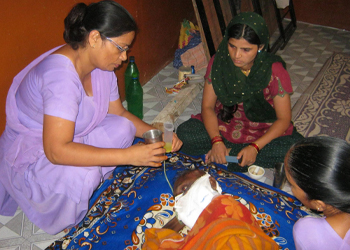
Rahul had traveled many places for cancer treatment and ended up in the large city of Mumbai. When the doctors there could not help, they sent him home. He had no more money and no hope. Then Rahul was referred to Prem Sewa Hospital for palliative care, but he and his family did not trust the team. Over and over, the staff went to his home, and eventually the family allowed them to examine Rahul and teach them how to care for him.
After getting to know the family well, the palliative care team also counseled Rahul and his daughter-in-law to heal their broken relationship before he died. There was a significant rift and they were not speaking to one another, but the PC team stressed the need for taking care of one’s parents. Rahul and his daughter-in-law resolved their differences and were reconciled before he died. In the end, the family was very thankful for the help of the palliative care team, and they still trust Prem Sewa staff and feel comfortable going in to the hospital if they have a health concern.
Infertility Sorrows Healed
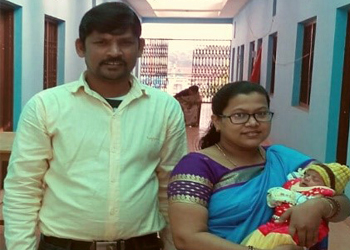
Sukhnath and Pankajini Badaik married in 2012, received God’s calling, and joined the Indian Evangelical Mission in Utraula. In 2014, they were thrilled to learn that they were pregnant with their first child, but then Pankajini miscarried. Then they lost another baby in 2015. It was an extremely difficult time for them, but God gave them the strength to accept it.
In 2016, Pankajini had to go through a major spinal surgery. Even in this hard season, they still had a strong desire for a baby and were continuously praying about it. After recovering from the surgery, Pankajini conceived once more but again suffered from a miscarriage. They were devastated. God helped them cope, and they felt His presence abundantly in their life.
Finally, in 2018, Pankajini conceived for the fourth time. Their family, friends, missionaries from IEM, and the staff of Prem Sewa and many churches prayed for them. Through the power of prayer, God gave wisdom to the doctors at Prem Sewa to know the right treatment needed for the baby’s healthy development. In early 2019, they were blessed with a beautiful baby girl! He answered their prayers and His plans are always good.
Love Your Neighbor As Yourself
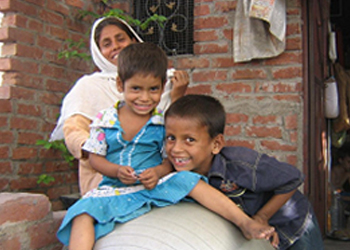
Just across the street from the humble office of the EHA Kari Project in northeast Delhi lives a woman named Kaneez and her children.
She’s a young mother with two deformed, turned-in feet and who hobbles around her house. The project staff helped her two years ago when her husband died and she was left with no support. They went through government channels to get her a monthly widow’s pension. They also helped her fix her front door so that it’s lockable.
Now doctors have diagnosed her 10-year-old son, Nadeem, with leukemia. It is the treatable kind, but Nadeem will have to go to the hospital every third day for six months. Then he will have two more years of less intensive treatment. Since his immune system will be weakened, it is important that Nadeem live in a clean environment and eat well to protect him from infection. So Kari project manager Anthony and his wife Babli have volunteered to take Nadeem and his older brother into their home. Kari healthcare worker Kushnuda will take Nadeem every third day many miles by public transportation to the large government hospital AIIMS for his treatment. These EHA staff are literally going the extra mile to love their neighbors as themselves.
Healing Blindness One Person at a Time
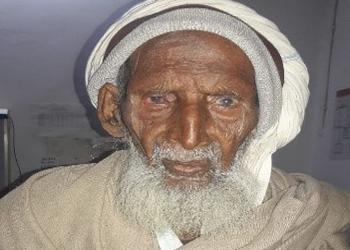
Imagine a scenario in which just four eye-care centers, located in a backward region in India, are serving a population of 2.6 million. Such is the reality for Utraula in the district of Balrampur, where EHA’s Prem Sewa Hospital is located. Blindness due to cataracts is one of the leading impairments in this area.
Mohammad Siddique, a 110-year-old man, came to Prem Sewa for cataract surgery. He had very advanced cataracts with minimal vision due to negligence by his family and lack of funds. He was operated on, along with his daughter-in-law, who was suffering from the same condition.
This case gives us insight into the insufficient healthcare available in the district of Balrampur. According to the District Blindness Control Society, in order to eradicate blindness, 11,000 cataract surgeries would need to be performed annually. This would mean that each of the four eye care centers would have to perform 2,750 surgeries each year. The unfortunate reality is that all four centers combined only do 3,000 surgeries annually, and 1,000 of these are completed at Prem Sewa.
Patients like Mohammad are incredibly thankful for this sight-giving surgery, so Prem Sewa will continue to move ahead, restoring sight to one person at a time.
Purchase of a New Microscope
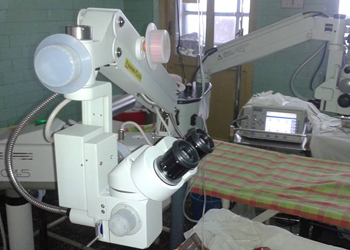
They needed a new operating microscope in order to more adequately care for patients in the eye department, but there simply were no funds to purchase one. Then a large donation came in to EHA USA from a Pennsylvania church where one of EHA’s former international visitors worships.
The money received was enough to purchase a $7,700 microscope with some left over to buy a mini laptop and some other eye equipment. The staff are thrilled with the new tools.
Staff ophthalmologists Dr. P. Singson and Dr. Jennifer said, “Once again we would like to thank all the donors and well-wishers who donated money for the microscope. The microscope has been a blessing to the people of Utraula. The number of people we have reached out to has grown as we have been able to increase the number of operations. We need prayer support to expand the eye department so that the community at large may be reached to open their physical as well as their spiritual eyes.”
Blessed with a Baby and New Hope
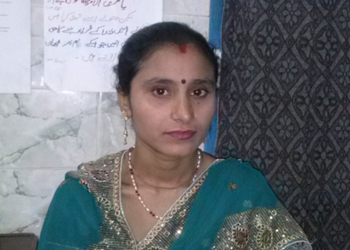
She had been married for nine years and had suffered through five miscarriages before coming to Prem Sewa Hospital.
Suman Mishra consulted with the Senior Obstetrics and Gynecology staff, and they all prayed for her difficulties. She is now five months pregnant and comes in for regular checkups. During one of her exams, the staff shared about God with her and she listened carefully and showed interest.
To encourage her faith, Suman was given the Word, which she loves to read regularly. When asked what she likes most about it, she replies that in the her religion, many people worship their god as a kind of showing off rather than worshiping, but in the Word, Jesus says to pray behind closed doors. If she has difficulty reading parts of it, her husband helps her, and her family is not restricting her reading at all. Suman believes in the miracles that can happen through God.
Making Blind Eyes See
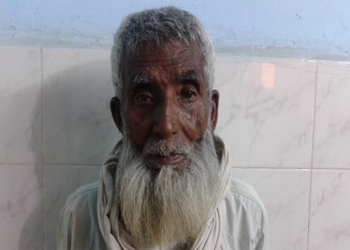
70-year-old Sukur Ahmed came to Prem Sewa Hospital complaining of dim vision. When the staff inquired about his background, it was discovered that he had no one to look after him since his wife died five years ago and his only son died five years prior to that. He is extremely poor, surviving solely on handouts from the pradhan (village headman) and other villagers.
Upon examining Sukur, the ophthalmologist found that his vision in both eyes was so bad he couldn’t count fingers held right before his face. The organization WHO defines blindness as the inability to count fingers at a distance of three meters, so Sukur would definitely be considered blind in both eyes. Unfortunately, the simple cataract surgery he needs costs 600 rupees ($10), which for him is out of the question. That same amount would buy just a pizza in the more wealthy city areas. Thanks to generous donations that had come in for needy patients, Sukur received his surgery and his sight.
Blindness due to cataracts is not seen much in other parts of India, but it is still prevalent in North India where good health care facilities are not as common. Prem Sewa staff battle issues such as poor road conditions, lack of health care awareness, and patients’ inability to pay when they seek to help poor villagers. They strive to bring accessible, affordable eye care to all those in their area.
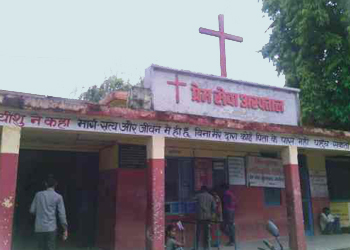
About Prem Sewa Hospital
Founded in 1966 as a small clinic with 12 beds, Prem Sewa Hospital serves the districts of Balrampur, Gonda, Bahraich, and Siddharth Nagar in north-central India. Currently housing 35 beds, Prem Sewa Hospital provides 13 percent of the available hospital beds in these districts. The medical services offered at the hospital focus on obstetrics and gynecology, community reproductive and child health, eyecare, and dentistry.
The Prem Sewa Community Health Development Project works in the Utraula and Gaindas Bujurg blocks in the Balrampur district. Programs focus on female literacy, reproductive and child health, and community organization. Most of the work is done among people belonging to scheduled castes, scheduled tribes, and other lower/backward castes – all marginalized members of Indian society.
The literacy of women has been a focus of this project for ten years. Literacy animators are trained annually, and typically more than 200 women complete the six-month course each year. Along with being taught how to read and write, the women are also taught skills such as stitching so that they have a marketable skill with which to help support their families. Women and mothers who become literate are much more likely to adopt positive and preventative health behaviors, also taught by the Community Health and Development workers.
Another focus of the project is antenatal care for pregnant women and immunization for children. Improving the health of infants before and after birth is an important ministry of the project. Prem Sewa Hospital has a mobile clinic with which they travel to poor villages to provide medical services. Numerous eye camps are offered yearly. Self help groups teach women small business skills and animal husbandry techniques to assist them in generating income for their families. Through all of these programs, the staff at Prem Sewa desire to reach out to the community in God’s love. Among all people, such love can open doors to building relationships of trust and opportunities to share.
